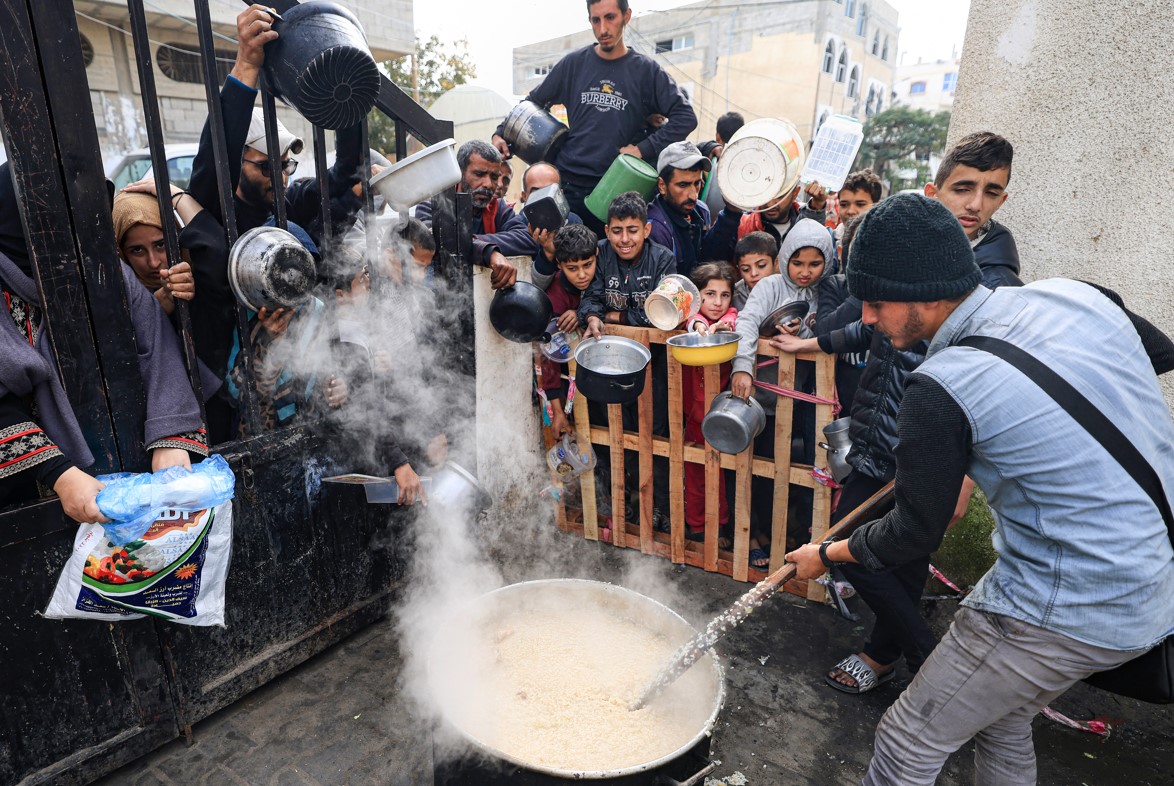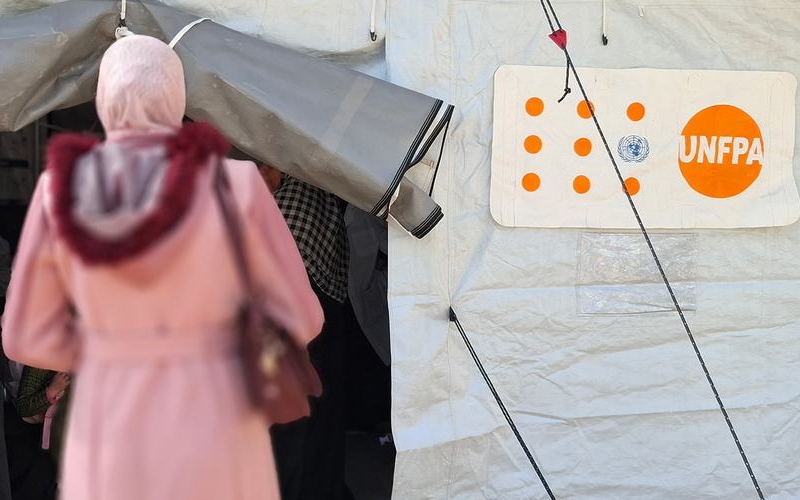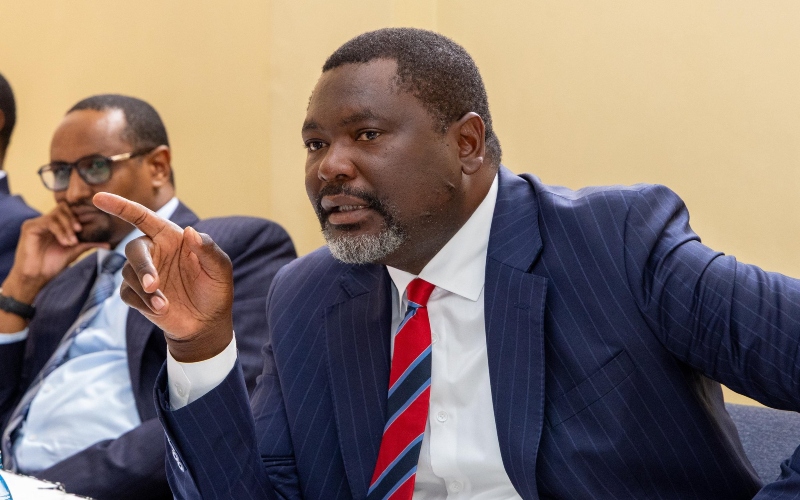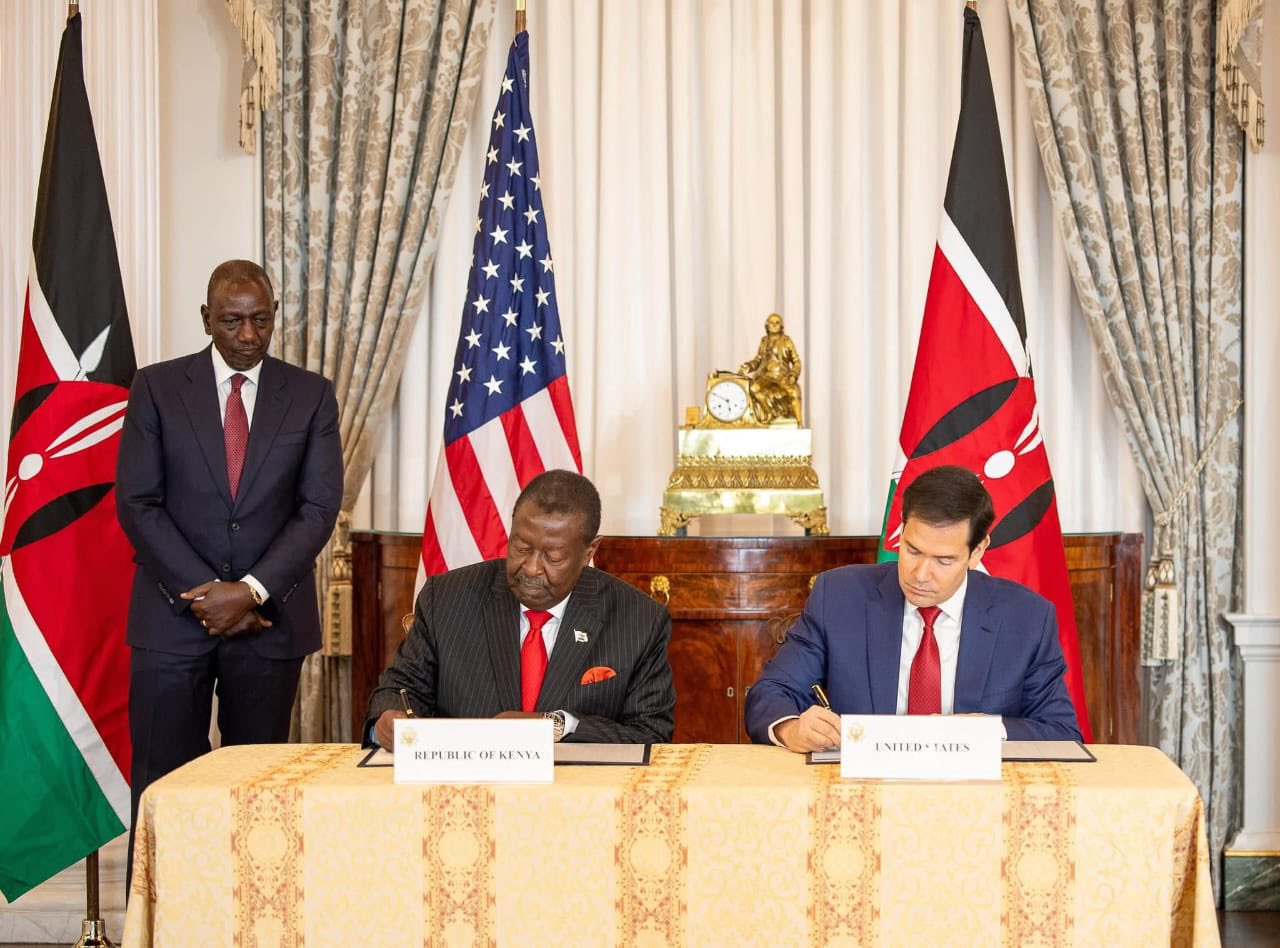Gaza: UN aid team reaches stricken north, confirms ‘shocking’ disease and hunger

To reach the north from the south, aid teams have to pass through Israeli military checkpoints that cut the Strip in two.
Amid reports of ongoing bombardment across Gaza on Friday, UN humanitarians highlighted “shocking levels of disease and hunger” after visiting an overwhelmed hospital in the north of the enclave.
The UN’s top aid official in the Occupied Palestinian Territory, Jamie McGoldrick, reached Kamal Adwan Hospital in Beit Lahia on Thursday, where children with the most severe and life-threatening hunger are being treated at a new World Health Organization (WHO)-supported specialised feeding facility.
More To Read
- Israeli raids and settler attacks deepen humanitarian crisis in West Bank
- Palestinian militia leader working with Israel killed in Southern Gaza
- UN says rebuilding Gaza will cost Sh 9.1 trillion as Palestinian economy nears collapse
- Gaza: Two children killed every day during fragile ceasefire, says UNICEF
- Two tables, one war: Life amid ceasefire in Israel and Gaza
- Gaza: 91 Palestinians killed in Israeli airstrikes as truce falters
“Without swift treatment, these children are at imminent risk of death,” the UN Aid Coordination Office, OCHA, said, in a call for all parties to the conflict to respect the laws of war and international humanitarian law. “Civilians and the infrastructure they rely on, including hospitals, must be protected,” the UN agency insisted.
Fuel and medical supplies were delivered to Kamal Adwan Hospital, "but aid is just a trickle," said the UN Agency for Palestinian Refugees, UNRWA. "Food needs to reach the north NOW to avert famine," it said in a post on X.
The situation in north #Gaza is beyond desperate.@ScottAnderGaza met @UNRWA staff still working despite unspeakable challenges & visited Kamal Adwan Hospital.
— UNRWA (@UNRWA) March 22, 2024
Fuel & medical supplies were delivered, but aid is just a trickle. Food needs to reach the north NOW to avert famine. pic.twitter.com/O3Vt6n9xCV
In a related development, media reports indicated that the Israeli military raid at Al Shifa Hospital in Gaza City was continuing for a fifth straight day.
Al Shifa, which is Gaza’s largest health centre, only recently restored “minimal” services, OCHA said, adding that “hostilities in and around the facility” have put patients, medical teams and treatment in jeopardy.
“People in Gaza, particularly in the north, are experiencing shocking levels of disease and hunger. We and our humanitarian partners continue to do everything we can to meet the overwhelming needs of the civilian population,” OCHA insisted.
Aid access woes
In a video on X, OCHA Head of Sub-Office in Gaza, Georgios Petropoulos, underscored the difficulties of accessing northern Gaza with food or medical supplies, because of ongoing aid constraints.
To reach the north from the south, aid teams have to pass through Israeli military checkpoints that cut the Strip in two.
“One of the biggest problems we have in Gaza is the inability to get between north and south Gaza,” Petropoulos said, describing how on a recent mission, he found a 75- to 80-year-old man alone and “covered with dust” sitting down in the road. “We picked him up, we gave him some water, we put him in the back of our car, and we just drove him a few hundred metres up the road until we found a family of people that were on the street.”
There has been a lot of debate and finger-pointing about the challenges to getting aid to people in need in Gaza.
— Tom Fletcher (@UNReliefChief) March 22, 2024
So, let’s settle this once and for all. pic.twitter.com/mUB6mQiKdc
“We’re calling on everyone to respect civilians trying to flee war,” Petropoulos said.
Echoing that message, OCHA reiterated that aid teams continue to be “repeatedly prevented from doing our job, especially in the besieged north.”.
Ongoing violence, “unceasing bombardments,” and the collapse of civil order, in addition to access constraints, “continue to impede the humanitarian response," the UN aid coordination office insisted.
“With hostilities now in their sixth month and Gaza moving ever closer to famine, we must flood Gaza with aid.”
All eyes on UNSC
Meanwhile, the UN Security Council (UNSC) prepared to gather on Friday to vote on a US-led resolution highlighting “the imperative of an immediate and sustained ceasefire” in Gaza and the release of all remaining hostages, along with the delivery of essential humanitarian assistance.
Previously, US delegations have blocked attempts to pass a ceasefire resolution at the 15-member body, whose primary task is to maintain or restore international peace and security.
The development comes amid continued and growing international pressure for a ceasefire in the Gaza Strip and ramped up aid access for humanitarian missions, particularly to northern governorates, where food insecurity experts warned this week that famine could happen "anytime.”
Ahead of the UN Security Council meeting scheduled for 9 am in New York, US Secretary of State, Antony Blinken, said that the latest draft of the resolution included the call for “an immediate ceasefire tied to the release of hostages.”
US diplomatic push
The top US diplomat was speaking in Egypt during his latest tour of the Middle East as indirect negotiations on a possible deal continue between Israel and Hamas, brokered by the US, Egypt and Qatar. Mr. Blinken said an agreement was “very much possible.”.
On the humanitarian front, reports cited that the US was continuing its efforts to build a landing pontoon to deliver aid to Gaza by sea. The construction could be ready before May 1, a senior US official was cited as saying.
Attacks on aid warehouses in Gaza must stop: Rights office
The UN Human Rights Office (OHCHR) said on Friday that it was alarmed by the “recent series of attacks” in Gaza on aid warehouses and officials providing security for humanitarian aid deliveries, including police.
OHCHR said in a press release that at least three aid centres had been struck, in Rafah, Nuseirat and Jabalya, between March 13 and 19. There were deaths in each of the incidents.
At least four senior police officers were killed, including the director of An Nuseirat Police on March 19.
Open-source information indicates that in at least three other incidents, police vehicles or those providing security to aid trucks have been struck since early February.
OHCHR noted that attacking any civilians not directly involved in fighting could amount to a war crime. Police and other law enforcement agencies should be exempt from attack and must not be targeted.
“Such attacks have also contributed to the breakdown of civil order, creating an environment of growing chaos in which it is increasingly the strongest, often young men, who can monopolise the little assistance available and further deprive the most vulnerable of their access to food and other necessities," said OHCHR.
Israel, as the occupying power, must ensure the provision of food and medical care to the population in line with its needs. It should at least be ensuring humanitarians can do their work in a safe and dignified way, OHCHR continued.
Top Stories Today
















































